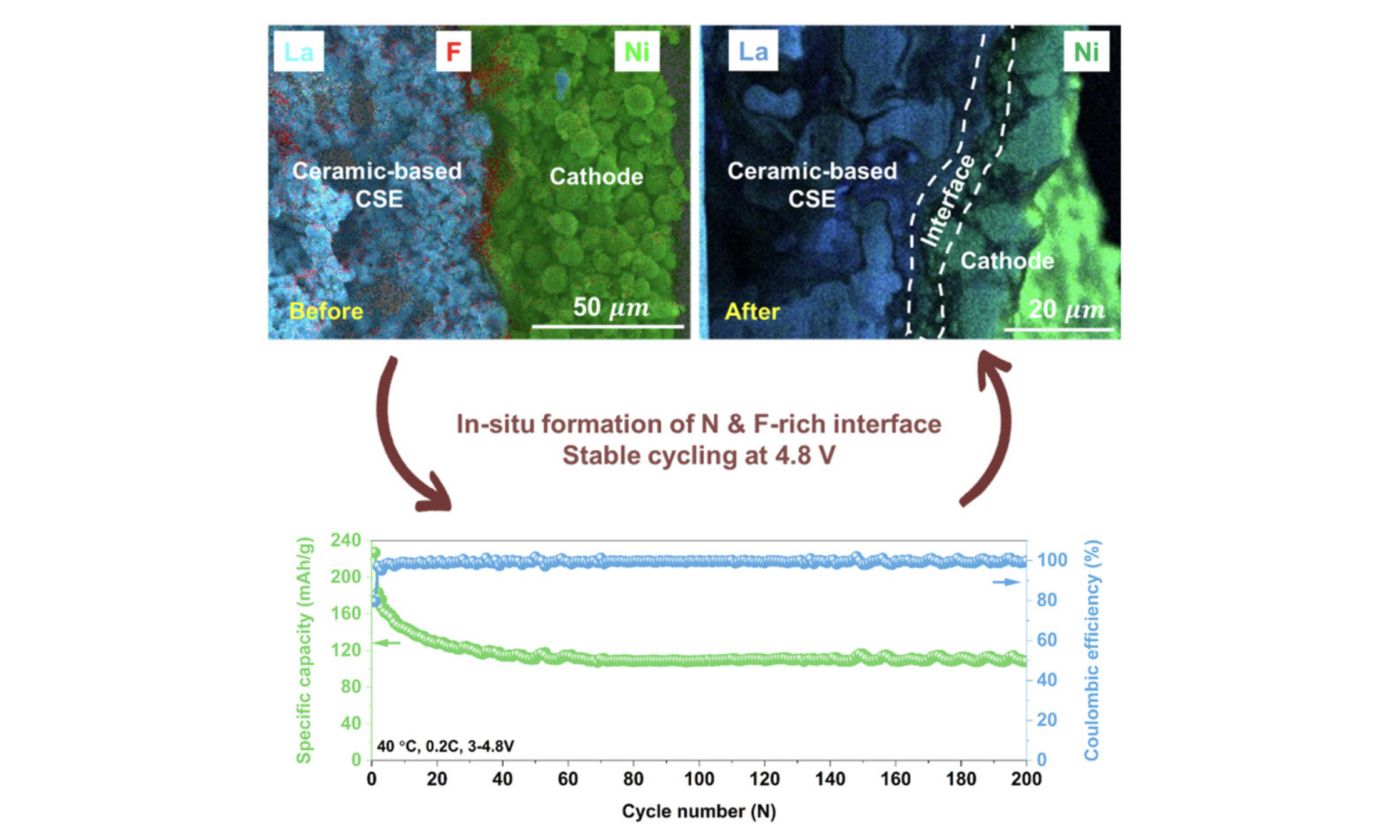McGill University find improvements for solid-state battery electrodes
McGill University in Montreal, Canada, says its research on solid-state batteries has achieved a significant breakthrough. The study has been published under the title of 4.8 V all-solid-state garnet-based lithium-metal batteries with stable interface in Cell Reports Physical Science.
Solid-state batteries are said to be potentially superior to current standard lithium-ion batteries, which rely on liquid electrolytes with a high level of flammability. Solid-state batteries also potentially have better durability with less degradation over time.
Solid-state batteries for high-performance applications, such as automotive applications, have traditionally faced the hurdle of the resistance that forms at the interface between the ceramic electrolyte and the electrodes. This resistance reduces battery efficiency and limits the amount of energy the battery can deliver, which, in turn, affects the battery’s performance.
The McGill team led by George Demopoulos, Senhao Wang, et al. has discovered that using a porous ceramic membrane filled with a small amount of polymer could allow lithium ions to move more freely within the battery. This eliminates the interfacial resistance between the solid electrolyte and the electrodes, significantly increasing battery performance.
This year has seen numerous reports of breakthroughs in solid-state batteries, all with slightly different approaches to interfacial resistance. Results from research, the supply of solutions, integration in vehicles, and test results from the first vehicles have all poured in this year on the solid-state battery front.
Just last month, in September 2024, nanotechnology company OCSiAl commissioned a dispersion plant for single-walled carbon nanotubes in Serbia to be supplied to the factory of the solid-state battery cell manufacturer ProLogium in Dunkirk, France, which is due to start mass production at the beginning of 2027.





0 Comments